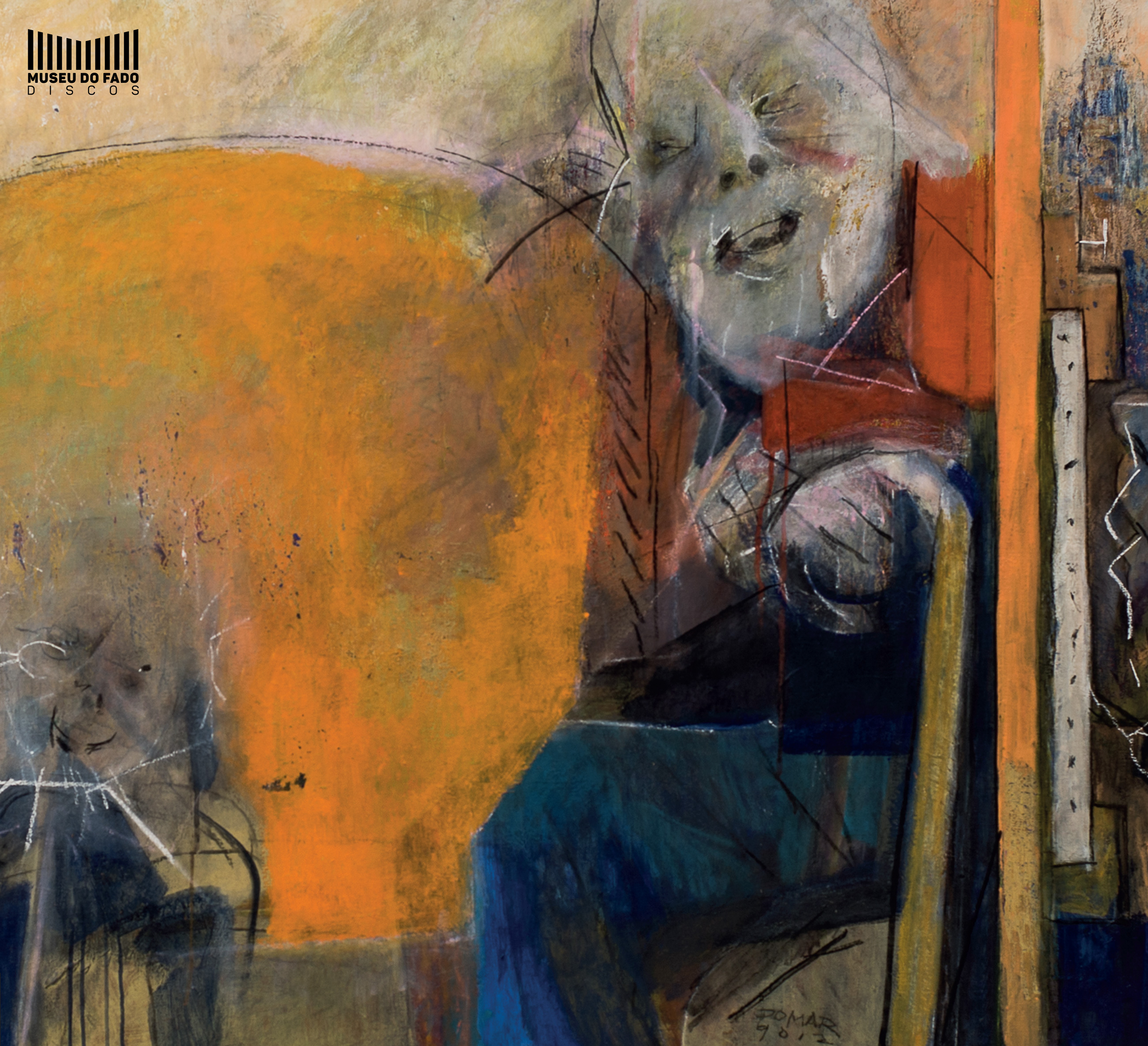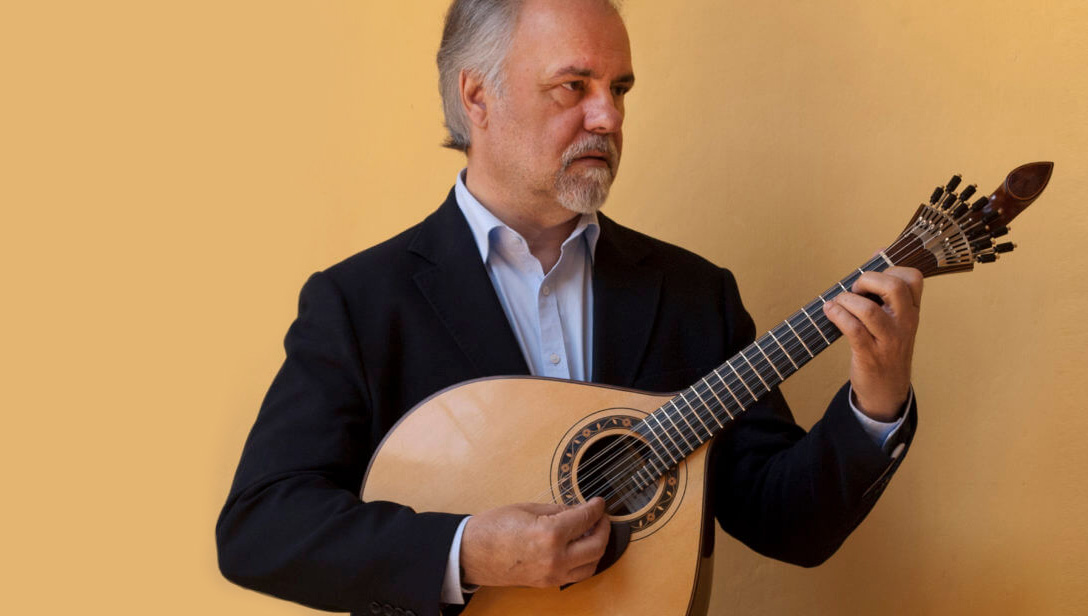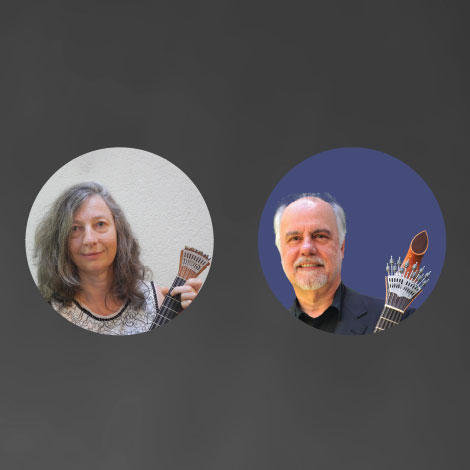Know more:
Pedro Caldeira Cabral
(N. 4 December, 1950)Pedro Caldeira Cabral, full name Pedro da Fonseca Caldeira Cabral, was born in Lisbon on December 4th, 1950. He and his brothers and sisters had classic musical amateur practise education. He became closely acquainted with Purcell, Bach, Mozart, Chopin, Schubert and Schumann by observing his father singing accompanied by his mother on piano. He started learning bass guitar and Bisel flute with his sisters.
During his childhood his cousin gave him lessons of guitar and soon he was fond of this instrument. In the following years the doctor and guitar player, César Augusto Bordallo, gave him lessons, but this time on Coimbra’s tune and Carlos Paredes’s style (a repertoire that he performed so well).
When he was 10 years old he received an antique guitar, which was offered to his grandfather by the famous actress and singer Adelina Fernandes. António Duarte, a handcrafter from Oporto, manufactured this instrument in 1905 and it was the instrument that he played hard until he was 16 years old, when he bought his first professional guitar of João Pedro Grácio Júnior.
He was been performing on amateur shows since he was 14 years old accompanying renowned singers as António Mello Corrêa, José Pracana, "Chico" Stofell, Francisco Pessoa, Mercês Cunha Rego, Mercês Cardoso Pinto, Bela Buéri, Maria da Nazaré Martins, Vicente da Câmara, Teresa Tarouca and Maria Teresa de Noronha, among others.
During the second half of 60’s decade, he attended the houses of amateur Fado in Cascais at weekends as "O Cartola", "O Estribo", "Vira Milho" and "Galito".
In 1967, at the age of 16 Vicente da Câmara invites him to perform on direct broadcasting programmes of Fado in Rádio Clube Português, instead of Raul Nery, playing as soloist to an audience for the first time, accompanied by Fernando Alvim on bass guitar.
In the same year he began his job at the market named Mercado de Abril (later named Mercado da Primavera), accompanying the Fado’s singers João Braga and Vicente da Câmara, and the bass guitar players Júlio Gomes and Joel Pina.
Later in 1967, he was invited to play at the restaurant “Abril em Portugal (Rua das Taipas), next to António Luis Gomes (Guitar), Fernando Alvim (Bass Guitar) and Helder Nery (Bass Guitar), composing a group conducted by Luís Gomes.” (cf.Cabral, 1999: pp.271-272).
In 1968 he recorded his first album playing guitar together with António Luis Gomes‘s band, with whom he was doing radio and television programmes.
In 1969 he was invited to be part of the players who worked at the new Restaurant “O Luso”, in Travessa da Queimada (known before as “Café Luso”), a place of Fado and folklore tradition, which the show business is made according the previous experience of restaurant “Folclore”.
The songs arrangements and selection of songs to be presented on the Zip-Zip TV show were done by Pedro Caldeira Cabral together with Fernando Alvim.
He records many ballads and Fado songs, playing the Portuguese guitar (a traditional and marginal instrument), standing out the ballads of José Labaredas, Lídia Rita, António Macedo, Rui Gomes and father Fanhais.
In the same year he records an LP with the group of Fernando Alvim’s guitars and went to the Singing Europe International Festival, in Holland, accompanying João Ferreira-Rosa, next to Carlos Gonçalves (guitar), Pedro Leal (bass guitar) and Joel Pina (bass guitar).
Next year he still was playing at the restaurant “O Timpanas”. Then he went on a tour over Germany playing his music and also Carlos Paredes’s music on a guitar solo performance, and performances with Trio Odemira’s band and the singers Emília dos Reis and Luís Fernando.” (cf. Cabral, 1999: pp. 272-279)
In the next decades Pedro Caldeira Cabral does a lot of compositions to play solo or even in group. His repertoire is enlarged. He returns to university (Universidade Nova de Lisboa) and does many concerts in Portugal and abroad accompanied by several instruments as violin and horn. He founds a band called “La Batalla”, which is played mediaeval music and instruments, publishing a record called “Cantigas D´Amigo” (1984) being awarded the Critics Prize of Disco of the Year in Classic Music.
He also founds and conducts the group “Musica Ficta” and at the same time he accompanies Fado’s singers as Teresa Silva Carvalho, Ada de Castro, among others.
In 1985 is edited an LP with original music guitar titled “Pedro Caldeira Cabral”. “On this record the Portuguese guitar plays different kinds of music, different aesthetic performances, from Jazz to Classic Music, from World Music to solo performances.”
There are other international records like the CD with Belgium Brand GHA, "Guitarra Portuguesa" (1990), having new solo performances and other pieces of music of Armandino and José Nunes, accompanied by Francisco Perez. In 1991 is edited the CD called "Momentos da Guitarra Portuguesa" live recorded on the Festival Weltbeat concert in Hamburg, Germany.
In 1993, Pedro Caldeira Cabral gets international prestige with is his CD “Variações, awarding the "Internationaler Schallplatenpreis".
In January of 1996 he took part recording the official hymn of Expo’98 called "Pangea" of Nuno Rebelo’s authorship, playing Portuguese guitar as soloist with the Metropolitan Orchestra of Lisbon, conducted by Miguel Graça Moura.
On the Expo’98 he was the Artistic Manager of Portuguese Guitar’s Festival.
Pedro Caldeira Cabral is author of a lot of pieces of music to Portuguese guitar as:
"Baile das Meninas", "Baile dos Carêtos", "Balada do Castanheiro", "Balada da Oliveira", "Canção", "Canto da Mulher de Pedra", "Cantos da Lua", "Contraponto I", "Dança das Sombras", "Diálogo Crioulo", "Encontros", "Estudo em Acordes", "Estudo de Dedilho", "Gestos", "(In) Diferença", "Improviso à Partida", "Jogo de Sons", "Labirinto I", "Miscelânea", "Momentos/Fragmentos, "Novo Fandango", "O Som Dúvida Azul?", "Pêndulo", "Por Música Nos Entendemos...", "Prelúdio", "Retorno", "Sons de Andaluzia", "Sons de Belmonte", "Toada de Lisboa", "Valsa em Mi Menor", "Variações em Dó Menor", "Variações sobre o Fado Alberto", "Variações sobre o Fado Varella", "Variações sobre um Romance (D Mariana)"; "Versos a um Sorriso Mágico".
In 2019, Pedro Caldeira Cabral curated, at the Museu do Fado, the temporary exhibition "O Som da Saudade - A Cítara Portuguesa", a fascinating journey through the history of Portuguese guitar, from the 18th century to the present.
Source:
Biographical excerpt taken from Pedro Caldeira Cabral (1999) “A Guitarra Portuguesa”, col. “Um Século de Fado”, Lisbon, Ediclube;
http://www.museudofado.pt/calendario/detalhes.php?id=714
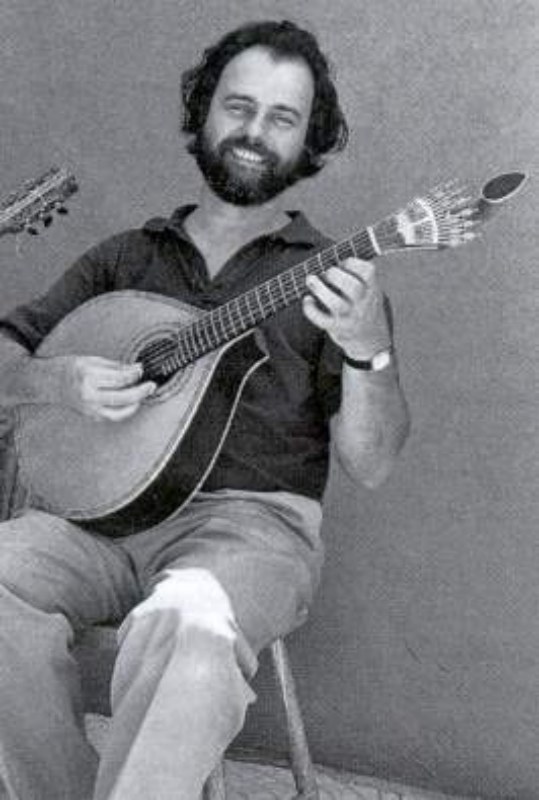
Pedro Caldeira Cabral
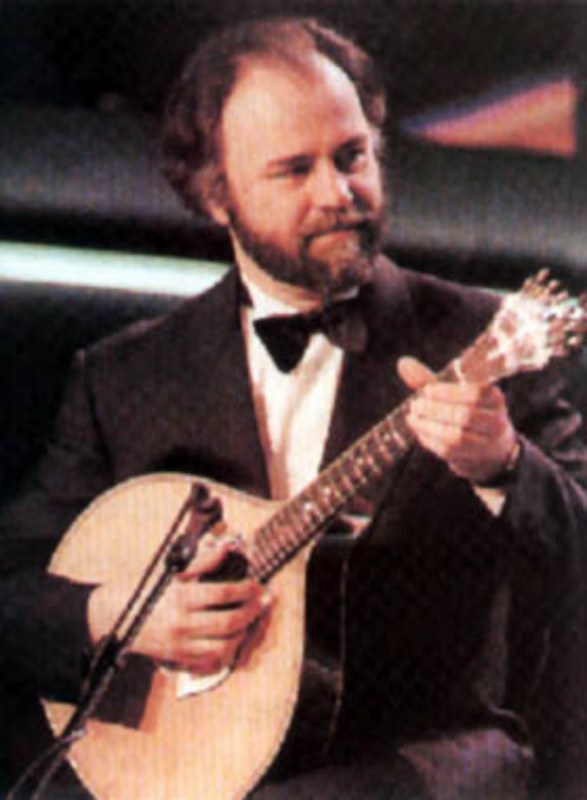
Pedro Caldeira Cabral
-
Balada do Castanheiro Pedro Caldeira Cabral (Pedro Caldeira Cabral)
